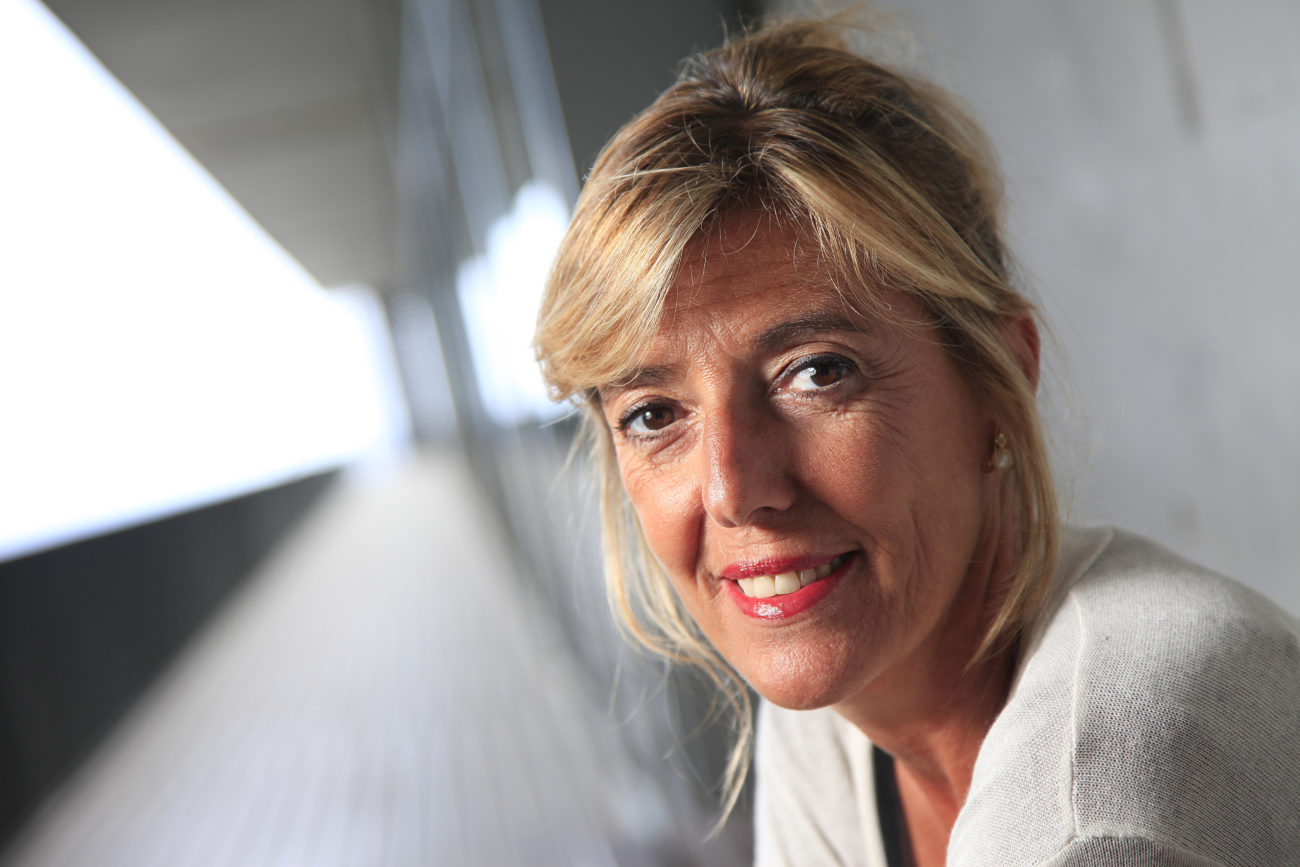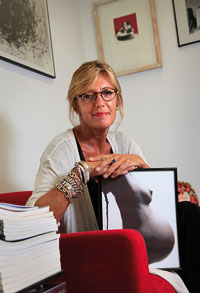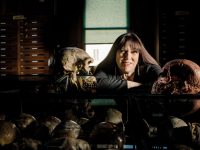Interview with Anna Veiga
«We are very close to achieving equality for women in the labour market»
Stem Cell Bank Director at the Centre of Regenerative Medicine in Barcelona

The following text is a summary of the full text available in Spanish and Catalan.
Anna Veiga is well known for her pioneer work in the field of in vitro fertilisation in Spain. She was the first test-tube baby’s scientific «mother» in Spain in 1984. She has enjoyed a great success in her professional career, which has not diminished her interest for researching new laboratory techniques. Nowadays she is facing the challenge of creating new therapies for currently incurable diseases. She is also head of the European Society for Human Reproduction and Embryology (ESHRE).
But Anna Veiga’s work has been of major importance for women’s lives— it has given them the opportunity to approach motherhood from a different perspective. That is why our new monograph, devoted to women’s role in science and academia, but also to how science shapes the role women are supposed to play in society, regards her point of view as highly valuable.
The interview takes place in her own office. We want to know her opinion about the repercussion her research has had for women.
«Not only in science, but also in all the other professional areas women have earned the right to hold some positions. I don’t think we are placed there in an artificial way»
Have artificial fertilisation techniques changed in some way the social role women play in society?
It has given them mainly freedom. Just like contraception —especially oral contraceptives— made them free to choose when not to get pregnant, artificial reproduction techniques enabled them to choose when to get pregnant. It has also given access to pregnancy to the reproductively challenged. Women have a wide range of possibilities available to decide when and how to have children.
Nowadays you are working at the Barcelona Biomedical Research Park. Do they apply any kind of women quota policy? What do you think about quota policies in general?
I think women have earned the right to hold some positions. I don’t think we are placed there in an artificial way, not as an obligation. Not only in science, but also in all the other professional areas women have reached similar levels to men. On the other hand, there are many women that choose biomedical careers. Therefore, there is no need to establish a quota because there are already many women with excellent records applying for biomedical degrees. Probably right now quota policies are still needed, but I would like to see the end of it some day. I think we are very close to achieving equality for women in the labour market. Soon enough quotas will be history.
Did you have to face any kind of difficulty in choosing your degree for the fact of being a woman?
I studied biology because I was interested in life in general. When I had to choose a degree there was no problem for choosing biology, even though in family there was no one who had previously studied biology or medicine. My parents respected my decision all along.

Photo: Jordi Play
And in the university?
There are many women in this area. Back then we were already a majority.
How do you combine motherhood and your professional career?
Motherhood can sometimes be an obstacle to achieve some specific professional goals. That is a personal choice, but women have to think about it. Women still find it difficult to successfully combine family and career, but this is mainly due to the fact that our devotion to our families and our children is higher than our partners’. When there is real equality in this area nobody will have to make a choice. Time will be equally divided. We have not yet come to that point, but we are on the right track. The claim «my husband really helps me a lot» puts me on my nerves and makes me think that we are not yet where we should be. It is all about sharing the common tasks.
The first in vitro conception took place in private institution. Was it a relevant factor?
I think this factor made it easier for us to carry out our task. It probably was faster than it would have been in any other kind of institution. In any case we are talking about the Dexeus Institute in the 1980s. It was a very advanced centre seeking to innovate and provide new methodologies. We were very excited with the project from the very beginning and we were skilled enough to do it as quickly as possible. Those were moments of innovation. By then the first kidney transplants were being performed and new methodologies in heart surgery were being applied. What were innovations back then are now routine procedures. Some of us were lucky enough to contribute in this area.
What is your research at the Centre of Regenerative Medicine focused on at the moment?
We are working on heart cells, retina cells, and macular regeneration. The retina, the heart and the kidney are some of the organs we are studying at the moment.
What do you aspire to achieve in you current position?
Our final goal is to perform stem cell therapies. Taming these cells in the laboratory and use them in people who have degenerative diseases. If we can’t cure them, we should at least try to ease the symptoms and improve their quality of life.





